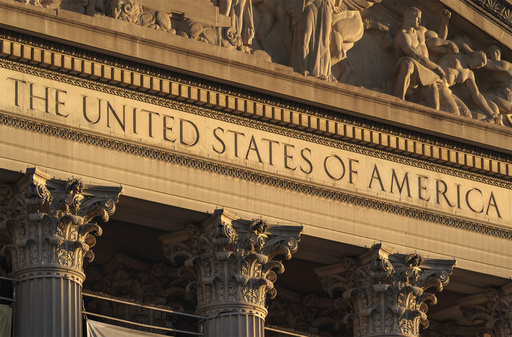As President Donald Trump swiftly pushes forward with his agenda to reshape the federal government, one agency, in particular, has faced significant turmoil: the National Archives and Records Administration (NARA). Long recognized for its nonpartisan nature and esteemed mission, this independent agency is integral to maintaining historical records and overseeing crucial democratic processes, such as constitutional amendments and presidential elections. With its extensive collection, NARA safeguards documents of national importance, including the original Constitution and the Declaration of Independence, as well as a plethora of military, employment, tax, and other vital records. However, recent changes instigated by the administration have left former employees concerned about the agency’s possible politicization.
Earlier this month, President Trump unexpectedly dismissed the head archivist, causing a ripple effect of departures among senior staff at the agency. Concerns have been raised as several employees either retired, accepted government buyouts, or were dismissed due to their probationary status. This upheaval comes amidst long-standing tensions between the President and the agency, aggravated by NARA’s previous notification to the Justice Department regarding Trump’s alleged mishandling of classified documents. This disclosure triggered an FBI search of his Mar-a-Lago estate, leading to a federal indictment, although the case was later dismissed. Trump’s abrupt decision to remove Colleen Shogan as the head archivist, without providing cause, has further fueled unease within and outside the agency.
The National Archives serves as the final resting place for all records generated by government operations, both domestically and internationally. Beyond managing historical documents, it also operates field offices and presidential libraries and plays a crucial role in authenticating and certifying new constitutional amendments. The agency’s remit extends to overseeing the Federal Register, which verifies electoral certificates during presidential elections. Despite its pivotal role, the recent upheaval within NARA has raised questions about its future direction under Trump’s administration.
In the wake of these changes, Trump has appointed Secretary of State Marco Rubio as the acting archivist. In parallel, Jim Byron, former president of the Nixon Foundation, is overseeing the agency’s daily operations. William “Jay” Bosanko, who was initially set to assume Shogan’s duties, retired amid speculation that he and other senior staff were pressured to leave. This speculation is further fueled by a government buyout accepted by some departing staff members.
Looking forward, Jim Byron, in an internal communication, underscored the importance of NARA’s mission and the agency’s commitment to transparency. Highlighting initiatives like the upcoming 250th anniversary of the Declaration of Independence and the release of previously sealed political files, Byron emphasized the strategic evaluation of the agency’s operations to optimize taxpayer resources. However, specifics about staffing impacts and the nature of the ongoing internal review remain undisclosed.
As President Trump prepares to nominate a new head for NARA, subject to Senate confirmation, employees and historians alike are anxious about the potential influence of the new leadership. There are concerns that an archivist closely aligned with Trump might skew the preservation of historical records, potentially affecting the archival handling of significant events, such as the Capitol attack on January 6, 2021.
The director of the Brennan Center’s elections and government program, Daniel Weiner, expressed worry about potential disruptions to democratic processes, stressing that any interference with NARA’s ministerial duties could threaten democracy. Norm Eisen, leading the State Democracy Defenders Fund, cautioned against a Trump-friendly archivist neglecting the Presidential Records Act, resulting in improperly handled classified documents when the President departs office.
In summary, NARA stands as a crucial institution in preserving the integrity of America’s historical records and facilitating democratic processes. As it faces potential changes under new leadership, many, including former staff members, emphasize the necessity of maintaining a nonpartisan approach to safeguard an unaltered historical record. Transparency, accountability, and a commitment to protect all aspects of the nation’s history, from triumphs to mistakes, are vital components of NARA’s mission in serving both historians and citizens alike.




